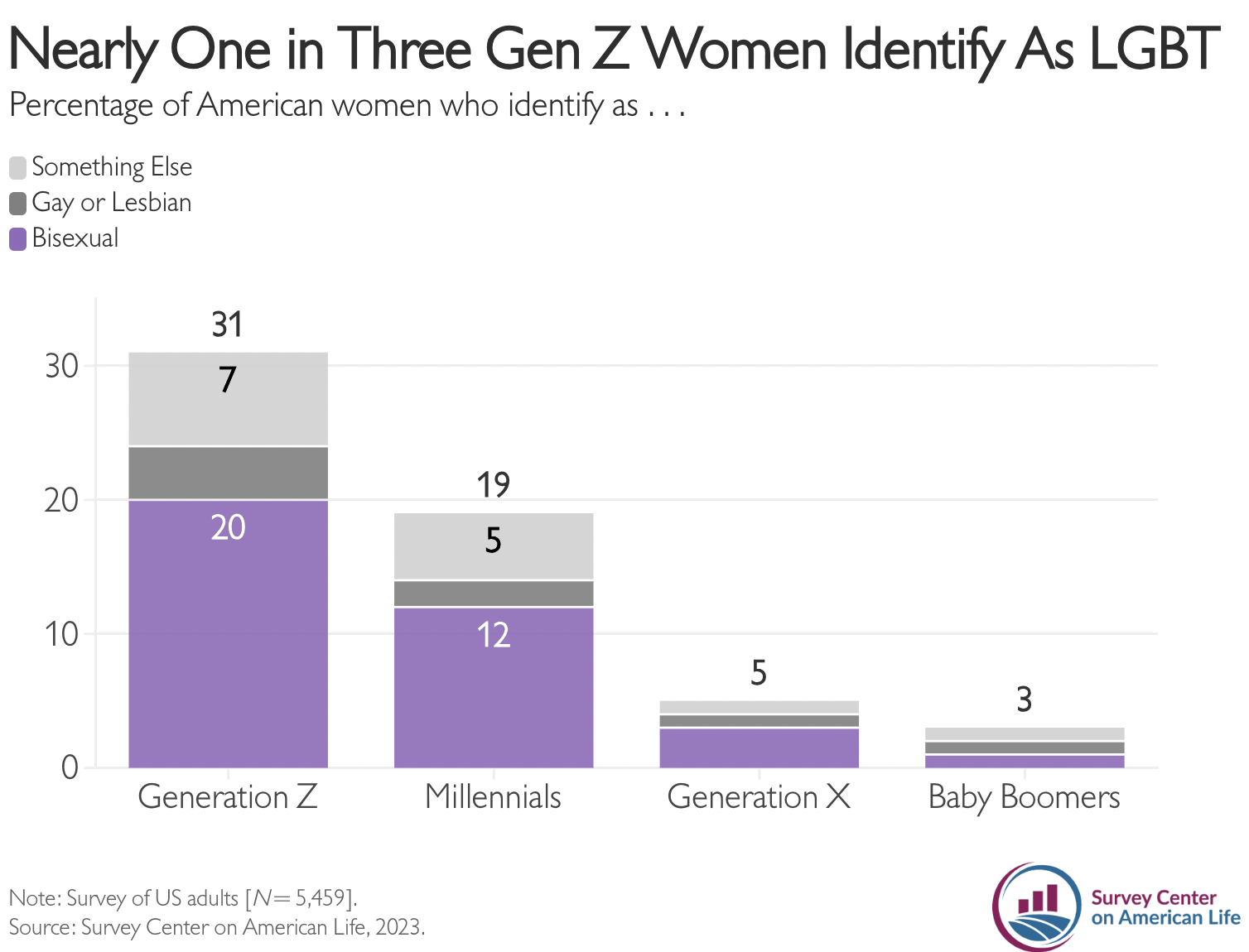
From the survey
Therapy is something that is widely hailed as good and helpful. It’s very obvious to everyone who looks at it that it’s totally destructive.
But boomers thought it was really good – “it’s like religion, but it’s all sciencey!” – so they sent their kids. Now Gen X is sending their kids.
You know where you should send your kids if they’re having problems?
Send them to the priest. Find a priest who is young enough to connect with kids, and send the kids to him.
Generation Z is going to therapy far more than any other age cohort, a new study has found.
Among American Gen Z adults, over a quarter (27%) reported having gone to therapy in their teenage years, including 31% of Gen Z women, a survey from the American Enterprise Institute found. Only 4% of boomers and 10% of Generation X attended therapy as teens, along with 20% of millennials.
The survey delved into the formative experiences of Gen Z, who were less likely than previous generations of teens to have part-time jobs, attend religious services, have a boyfriend or girlfriend, or drink or smoke, according to the survey. They were, however, much more likely to have experienced frequent loneliness.
These findings support claims of a youth mental health crisis spreading across the West, but it’s less apparent whether therapy is actually helping. Therapy methods long touted as universal interventions have been found to not only not help teens, but to actually exacerbate their problems and worsen their relationships with their parents, according to a recent report from the Atlantic analysing several studies on the subject.
In one study from Australia, researchers taught mental health improvement techniques that are commonly used in therapy to teenagers, expecting to see an improvement in psychological and social outcomes. Instead, the treatment group’s anxiety, depression and quality of life all declined compared to the control group, and their relationships to their parents worsened.
The uninspiring results of such studies seems to be having no impact on the popularity of mental health services. Behavioural therapy is a growth industry, and it’s expected to double over the coming decade as mental health disorders become more common and awareness of corresponding treatments continues to grow. Patients are now seeking out therapy through telehealth services, and a number of online companies have popped up to cater this market. One example is Hers and Hims, which offer mental health services including drug prescriptions and advertise their services relentlessly on digital streaming platforms.
“It’s not surprising that so many Gen Z’ers have received therapy, considering that 20% of US teens in 2021 suffered from major depression in the last year, twice as many as in 2011,” Jean Twenge, author of Generations, told UnHerd. “In addition, suicide rates have doubled, and more than twice as many are hospitalised for self-harm. These trends are similar across the Anglosphere. If anything, the statistics suggest more should get therapy.”
“Therapy is needed for some of our teens,” Brad Wilcox, director of the National Marriage Project at the University of Virginia, told UnHerd. “But the research also tells us that many young adults would be protected from anxiety and depression by spending more time outdoors, exercising, socialising, and doing activities with their families rather than spending time on a screen.”
Check it – from the same survey:
Do they need therapy because they’re gay?
Or do the therapists turn them gay?


